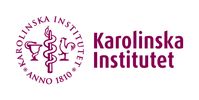Unnecessary use of beta-blockers after a heart attack
Half of all patients discharged from hospital after a heart attack are treated with beta-blockers unnecessarily. This is according to a new study published in the New England Journal of Medicine.
"I am convinced that this will influence future practice", says Tomas Jernberg, Professor at Karolinska Institutet and lead researcher of the study.

Today, when patients are discharged from hospitals after an acute heart attack, they are regularly treated with beta-blocker drugs such as metoprolol and bisoprolol. Now new research shows that about half of them do not benefit from the treatment and should not receive it at all. These are the patients who have suffered a small heart attack and have retained heart function afterwards. The study will change the way patients are treated in the future, says the lead researcher and last author of the study, Professor Tomas Jernberg from the Department of Clinical Sciences at Karolinska Institutet.
”I am convinced that this will influence future practice. This study has already been mentioned in the European guidelines for cardiac care, so the results are in demand," he says.
The project was led by researchers at Karolinska Institutet, Lund University and Uppsala University. More than 5,000 patients at 45 hospitals in Sweden, Estonia and New Zealand who suffered a small heart attack were randomized to either receive or not receive beta-blockers at discharge.
The study began in September 2017 and patients were followed up until November 2023, by which time 7.9 percent of those receiving beta-blockers had the primary outcome of death or a new heart attack, compared to 8.3 percent of those not receiving beta-blockers. This difference is not statistically significant. Nor was there any difference between the groups in the secondary outcomes.
The result means that, unusually, the drug treatment becomes simpler and cheaper for all parties, says Tomas Jernberg.
”Typically, new research results in the addition of a medication to a patient's regimen. However, this study shows that patients will benefit from taking one fewer drug”.”
But he immediately warns patients not to stop their treatment on their own accord. The current study is only about the effect of starting treatment after a small heart attack, not after a larger one. Nor does it show anything about the effects of stopping treatment. More importantly, stopping medication should always be done in consultation with the treating physician.
”This is for several reasons. There may be other causes, other diagnoses, behind the use of beta-blockers. Then there is the fact that if you are going to stop, you should stop beta-blockers gradually. If you do it too quickly, you can get some heart palpitations and other discomfort. So, it is very important that you talk to your doctor before stopping any heart medication," says Tomas Jernberg.
The research was funded by the Swedish Research Council and the Swedish Heart-Lung Foundation. The researchers report that there are no conflicts of interest.
Publication: "Beta-blockers after Myocardial Infarction and Preserved Ejection Fraction" Troels Yndigegn, Bertil Lindahl, Katarina Mars, Joakim Alfredsson, Jocelyne Benatar, Lisa Brandin, David Erlinge, Ola Hallen, Claes Held, Patrik Hjalmarsson, Pelle Johansson, Patric Karlström, Thomas Kellerth, Toomas Marandi, Annica Ravn-Fischer, Johan Sundström, Ollie Östlund, Robin Hofmann, Tomas Jernberg. New England Journal of Medicine, online April 7, 2024.
Facts:
In Sweden, around 20,000 people have a heart attack every year. Half of them have a small heart attack with retained heart function afterward. This means that the heart can still pump out more than 50 percent of the volume in the left chamber of the heart, known as preserved left ventricular systolic function.
The reasons behind the current practice of giving everyone a beta-blocker after a heart attack can be traced back to the 1980s when studies showed unequivocally that it was beneficial. But since then, other cardiovascular treatments have improved, as have diagnostics, so doctors are now detecting many of the heart attacks that were never classified as infarctions before. This, together with the fact that the incidence of heart attacks has steadily declined since the 1980s, means that today's heart attacks are generally smaller and with a higher proportion of people with preserved left ventricular function.
Source: Tomas Jernberg.
Contacts
For more information, please contact:
Tomas Jernberg, Professor
Department of Clinical Sciences, Karolinska Institutet
E-mail: tomas.jernberg@ki.se
Phone: +46 (0)70 167 14 74
Images

Karolinska Institutet (http://ki.se/en) is one of the world’s leading medical universities. Our vision is to advance knowledge about life and strive towards better health for all. Karolinska Institutet accounts for the single largest share of all academic medical research conducted in Sweden and offers the country’s broadest range of education in medicine and health sciences. The Nobel Assembly at Karolinska Institutet selects the Nobel laureates in Physiology or Medicine.
Subscribe to releases from Karolinska Institutet - English
Subscribe to all the latest releases from Karolinska Institutet - English by registering your e-mail address below. You can unsubscribe at any time.
Latest releases from Karolinska Institutet - English
New method reveals how the brain and inner ear are formed3.4.2025 20:00:00 CEST | Pressmeddelande
Researchers at Karolinska Institutet have developed a method that shows how the nervous system and sensory organs are formed in an embryo. By labelling stem cells with a genetic ‘barcode’, they have been able to follow the cells’ developmental journey and discover how the inner ear is formed in mice. The discovery, published in Science, could provide important insights for future treatment of hearing loss.
Fluoride in drinking water is associated with impaired childhood cognition7.3.2025 15:30:00 CET | Pressmeddelande
Elevated concentrations of fluoride can occur in well water, and in some countries, it is added to drinking water to counteract caries in the population. A study from Karolinska Institutet in Sweden now supports a few previous studies indicating that exposure to fluoride during the fetal stage or early childhood may impair cognition in children. The study is published in the journal Environmental Health Perspectives.
Children with ARFID face increased risk of disease17.2.2025 17:00:00 CET | Pressmeddelande
Children with avoidant restrictive food intake disorder (ARFID) have an elevated risk of developing psychiatric and physical conditions, a new study from Karolinska Institutet published in JAMA Pediatrics reports. The study highlights the importance of early identification to improve care of these children.
Preterm babies receive insufficient pain management27.1.2025 15:29:17 CET | Pressmeddelande
A large proportion of babies born very early need intensive care, which can be painful. But the healthcare system fails to provide pain relief to the full extent. This is shown by the largest survey to date of pain in neonatal care, now published in the journal Pain.
New study paves way for immunotherapies tailored for childhood cancers20.1.2025 17:00:00 CET | Pressmeddelande
Researchers at Karolinska Institutet and the Astrid Lindgren Children’s Hospital in Sweden have determined how children’s immune systems react to different kinds of cancer depending on their age. The study, which is published in the journal Cell, reveals significant differences between the immune response of children and adults, and has the potential to lead to new tailored treatments for children with cancer.
In our pressroom you can read all our latest releases, find our press contacts, images, documents and other relevant information about us.
Visit our pressroom